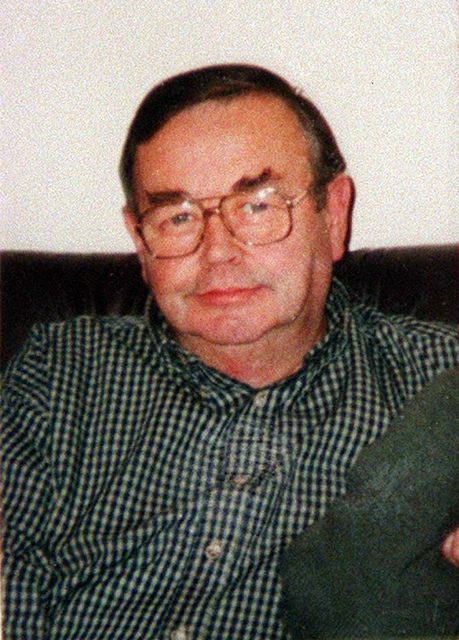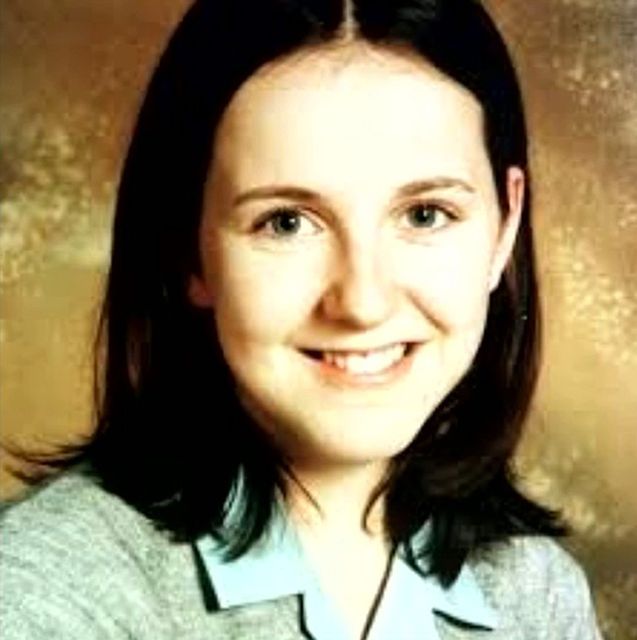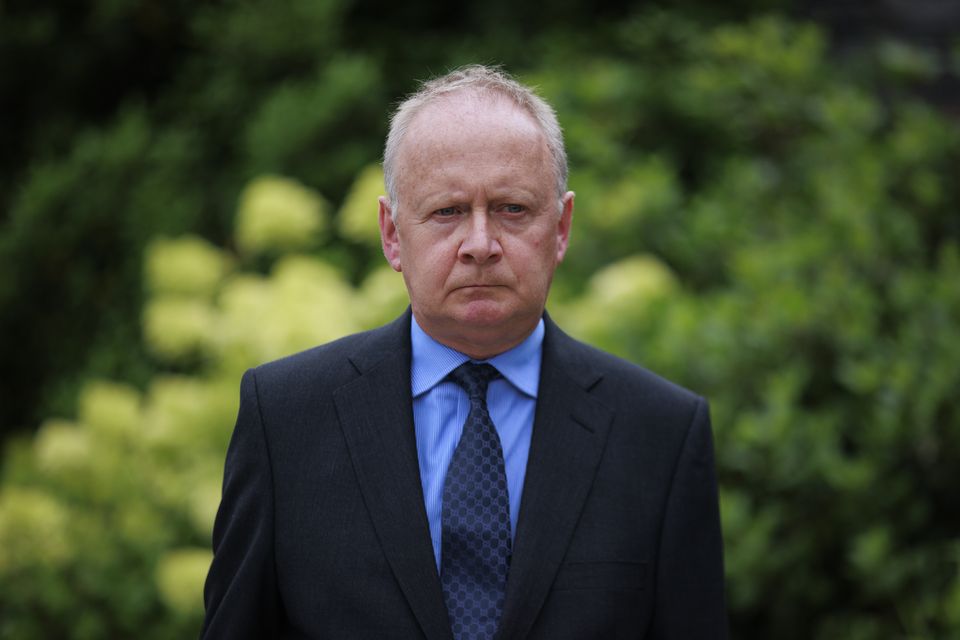The widower of one of the victims of the Omagh bombing had “demanded accountability” but was “met with wall of silence”, a public inquiry was told.
It came as the second week of commemorative hearings for the victims at the Omagh Bombing Inquiry concluded.
Twenty-nine people, including a woman pregnant with twins, died in the Real IRA attack on August 15 1998.
The inquiry is examining whether the bombing could reasonably have been prevented by the security forces.
On Thursday, the inquiry heard about the lives of Samantha McFarland, 17; who was volunteering at a charity shop on the day of the bombing, Sean McGrath, 61, whose granddaughter was born three days after the bombing; and Elizabeth ‘Libbi’ Rush, whose husband Laurence was an active campaigner in calling for a public inquiry.
Mr Rush died in 2012 at the age of 70.
Sean McGrath was killed in the bombing in August 1998 (Handout/PA)
Siobhan Rush, daughter of Elizabeth and Laurence Rush, said her parents were “soulmates” who first met at a dance when they were both 14 years old.
She said her mother worked at a shop on Market Street in Omagh, and was known for her “discretion and gentle nature”.
“She was respectful to others, wise, compassionate and thoughtful. More than anything else, Libbi loved her family with every bone in her body,” she said in a statement on behalf of herself and her brothers, Andrew and Anthony.
After her mother’s death, she told the inquiry her father sought answers on why his wife had been killed but was “met with a wall of silence”.
She said that “even friends and extended family avoided the subject”, but that her father was “undeterred”.
“We understand that this culture of silence is a method of coping, but also the external role of silence is a form of paramilitary and state control of our communities.
“Our father Laurence Rush was unable to stay silent, because he knew that silence was a lie.”
She said that her father “demanded accountability and transparency” and “relentlessly confronted all” out of love for his wife, Libbi.
“We believe the Omagh bomb was a crime against humanity. We believe there were policies in place to ignore or deescalate any tensions that could prompt changes in the current narrative.
“We believe our father’s quest for the truth exposed the atrocity as a premeditated war tactic. Experiencing 30 years of war and conflict, retaliation and the cycle of violence, we believe until we address the root causes and social injustices, we will never see resolution.
Samantha McFarland died in the atrocity (Handout/PA)
“Peace will never prevail. Our children will continue to be enemies, divided by the inaccuracies in their history.”
Samantha McFarland, 17, from Omagh, was the youngest of three children and described as having “a genuine kindness that people were drawn to”.
She was to be the bridesmaid at her older brother’s wedding later that year.
The teenager had been volunteering in an Oxfam shop, where she worked one day a week over the summer.
The inquiry heard that so many people attended Samantha’s funeral that some mourners had to stand outside the church.
Inquiry chairman Lord Turnbull said that many accounts had been shared of children and young people who had been killed in the Omagh blast.
He said that among the other “awful” deaths were the “senseless killing of children and young people who were about to embark on the adventure of life”.
Lord Turnbull is chairing the inquiry (Liam McBurney/PA)
“One really has to wonder whether there could be any greater contrast of the generous and socially minded attitude of a teenager who chose to spend the precious spare time of her young years trying to help those with less advantages than herself, and on the other hand, the morality of those who would walk away from a car loaded with explosives in the middle of the main street on a sunny Saturday afternoon in the sure knowledge that devastation would ensue shortly thereafter.”
The children of Sean McGrath described the pain of recalling how their father died, after succumbing to his injuries almost three weeks after the Omagh bomb on September 5 1998.
A businessman and grandfather, he had been out shopping when the blast went off on the street he was born on.
His son Gavin and daughter-in-law Emma were expecting their first child on the same week the bomb exploded. Their daughter Polly was born on August 18.
A video of Sean playing with his granddaughter Sarah at her second birthday, just four months before the bomb, was played at the inquiry.
His son Conor said the aftermath of the blast was “as surreal as it was devastating” and that the family had suffered from PTSD for a long time.
“There isn’t a week goes by that I don’t think about Sean and what he’s missed out on, especially not getting to know our daughters. At least he had two years as a granddad to Sarah, but never knew Polly, Emma or Hattie, which I found devastating because he’d have been so proud.
“It still hurts to talk about Sean’s death – murder – which is why I avoid the issue. Every anniversary just picks at the scar, maybe not as raw now, but still not healed and I doubt it ever will.
“This process has been difficult to confront, but necessary to tell you about the father I knew – always positive, faithful, hard-working, warm-hearted, and very much missed by all who knew him well.”
A statement by Gavin McGrath, read out by his wife Emma, said the impact on their family and been “too emotional to examine”.
“I feel that unless they’ve absolutely had to, our family have metaphorically looked the other way in respect of how my father has died, as talking about that horrendous day and the aftermath is simply too enormous to discuss.
“If we don’t open the wounds, we can’t feel the pain. It’s not what is recommended by the experts, but it is literally the only way we can all deal with it.”
The inquiry resumes at 10am on Monday.


